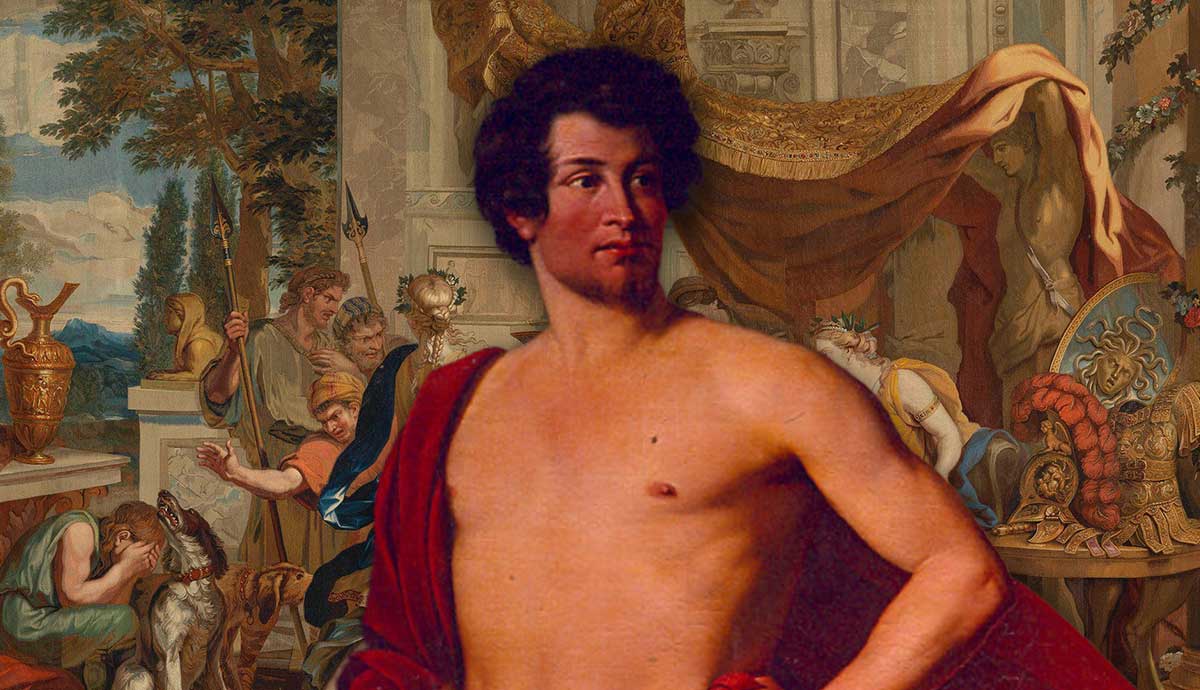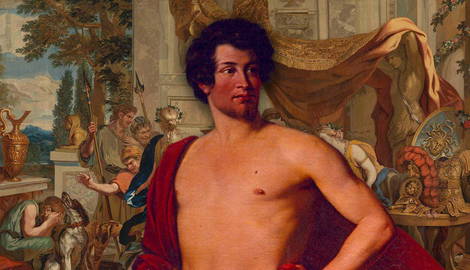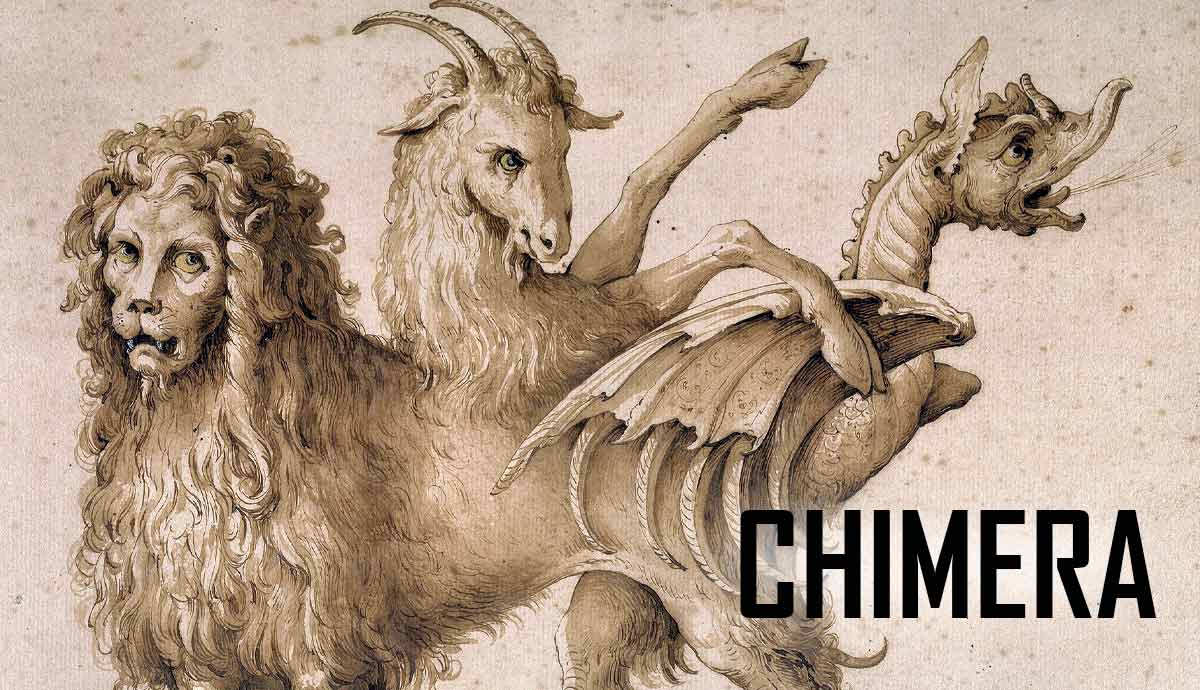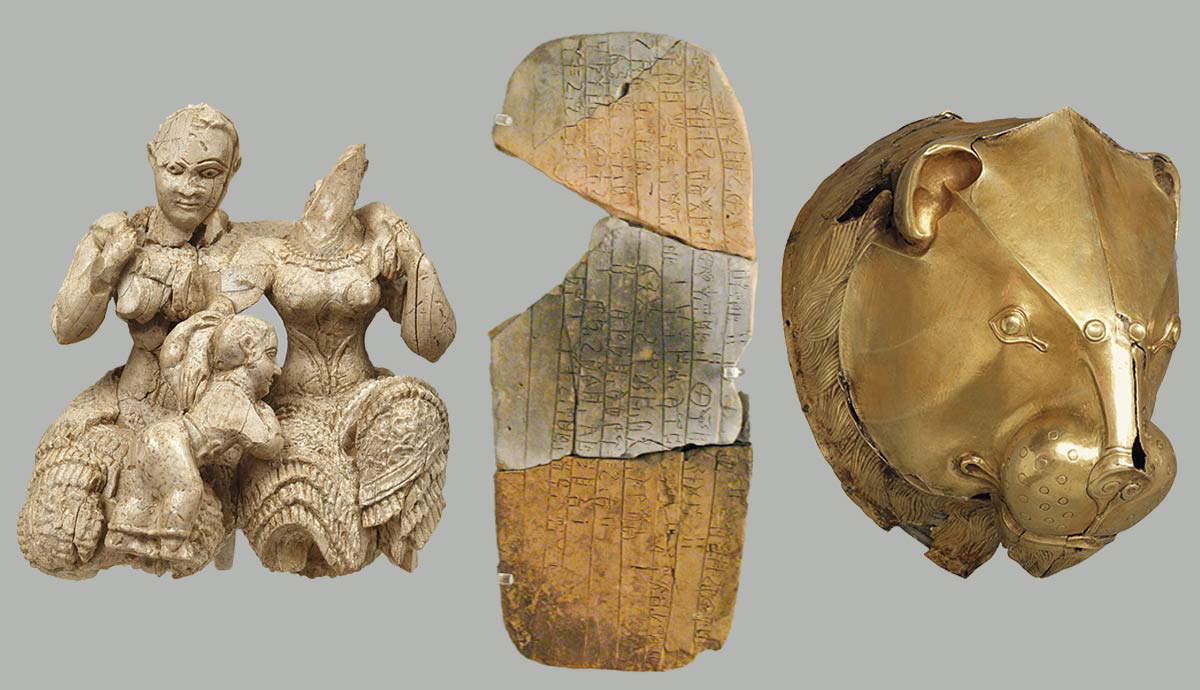
Prince Meleager of Calydon, cursed by fate, was the son of Ares. He led the legendary hunt for the Calydonian Boar, gathering many of the greatest heroes from Greek mythology to assist him in slaying the beast. During this hunt, Meleager fell in love with the heroine Atalanta. His passion for her, along with the wrath of a goddess and his mother’s vengeance, ultimately led to the tragic end of his life. Learn more about Meleager, the cursed hero of the Calydonian Boar hunt.
The Early Life of Meleager

Meleager was the eldest son of King Oeneus of Calydon and Queen Althaea, the daughter of Thestius, the King of Pleuron. In some versions of the myth, Meleager’s true father was not Oeneus but the god of war, Ares. Meleager had several siblings, usually identified as five brothers, Phereus, Agelaus, Toxeus, Clymenus, and Periphas, and four sisters: Gorge, Melanippe, Eurymede, and Deianira.
Meleager was not the only sibling with divine parentage; his sister, Deianira, was the daughter of Dionysus and Althaea. When Dionysus visited Oeneus, the god of wine fell in love with Althaea, leading Oeneus to leave the city to allow them to be together. In appreciation for his hospitality, Dionysus taught Oeneus the art of winemaking and gifted him a magical grapevine that consistently produced abundant harvests.
Meleager married Cleopatra, the daughter of the Argonaut Idas and Marpessa of Aetolia. Together, Meleager and Cleopatra had a daughter named Polydora. According to some sources, Polydora married Protesilaus, the first warrior to die during the Trojan War. In other accounts, Meleager married Atalanta, and they had a son named Parthenopaeus, who became one of the Seven Against Thebes.
Cursed by Fate

Meleager would grow up to be a noble, charismatic, and brave hero who earned the respect of his peers. However, unbeknownst to him, he had been cursed just a few days after his birth. According to the myth, seven days after Althaea gave birth to Meleager, she had a strange dream. In her dream, Althaea woke at midnight to find three older women illuminated by the light of the fireplace, hovering over Meleager’s cot. These three women were the Moirai, the three goddesses of fate who personified the inescapable destiny of humankind. The sisters—Clotho (the Spinner), Lachesis (the Apportioner of Lots), and Atropos (She Who Cannot Be Turned)—wove the personal threads of life into the grand tapestry of human destiny. They spun each person’s story from birth and would use their shears to cut a life thread at the ordained moment of death.
Clotho declared that Meleager would be noble, Lachesis announced he would be brave, and Atropos, after taking a moment to gaze into the crackling fire, proclaimed that Meleager would live only as long as the central log, in the nearby fireplace, remained unconsumed by flames. With his fate determined, the sisters wove Meleager’s destiny into the grand tapestry before vanishing. Althaea awoke, uncertain whether she had been dreaming or if the gods had ensnared her and her son in one of their cruel games. At that moment, it did not matter.

Althaea leaped out of bed, seized the log at the center of the fire as its flames began to take hold of it, and dropped it into the water before wrapping it in a blanket. She then buried the log secretly before returning to her chambers. If her dream had indeed been a true vision, it meant her newborn son was cursed, with his entire life reliant on the safety of a single piece of wood. However, it also suggested that her son would be nearly invincible if no one found and burned that log.
Voyage of the Argonauts

Meleager was one of the many heroes who joined Jason on his quest to Colchis for the Golden Fleece. At the time, Meleager was just a boy and did not appear to play a significant role in the stories of the Argonauts’ adventures. However, some versions of the tale mention that Meleager assisted in killing Aeetes, the king of Colchis when they finally obtained the Golden Fleece.
The Hunt for the Calydonian Boar

Disaster struck Meleager’s homeland shortly after he returned home from his adventures with the Argonauts. Each year, Oeneus would offer the twelve juiciest grapes harvested from the magical grapevine given to him by Dionysus to all twelve Olympian gods as a show of devotion. However, in a year when misfortune would come to Calydon, Oeneus forgot to make an offering to Artemis, the goddess of the hunt, nature, and wild animals.
Although it is unwise to anger any of the Olympian gods, Artemis, in particular, was known for holding grudges and exacting her wrath for even the slightest offenses to her honor and dignity. To avenge this slight, she sent a monstrous boar that began ravaging the Kingdom of Calydon. The beast had razor-sharp tusks the size of an elephant’s and an insatiable appetite. It devoured livestock, crops, vineyards, and even the unfortunate citizens of Calydon.
Refugees across the kingdom fled to the city, warning King Oeneus of an impending famine caused by a monstrous boar. The initial hunting parties he sent never returned, prompting Oeneus to call for heroes to aid in the hunt, offering the beast’s tusks and pelt as a reward. Many renowned Greek heroes assembled in Calydon, driven not by the reward but by the chance to immortalize themselves in history as the hero who slayed the Calydonian Boar.
Heroes of the Hunt

Many who answered Calydon’s call for aid were former crewmates of Meleager from the Argo. Notable Argonauts included their old leader Jason, the Dioscuri twins Castor and Pollux, Pelias and his brother Telamon, as well as Prince Ancaeus, Euryton, King of Pithia, and a young Nestor, who would later become a wise counselor during the Trojan War.
Theseus of Athens, renowned for slaying the Minotaur and the Crommyonian Sow—who some claimed was the mother of the Calydonian Boar—joined the hunt alongside his best friend, Pirithous. Meleager’s maternal uncles, the Thestiades, also participated in the hunt. The names and numbers of the Thestiades brothers vary across mythological accounts, most commonly being Toxeus, Pelexippus, Hypermnestra, and Eurypylus.
The heroine, Atalanta, was the last notable member to join the hunt alongside Meleager. Because she was a girl, her father, an Arcadian king, abandoned her as an infant on the slopes of Mount Parthenon. Fortunately, Atalanta was rescued by a mother bear and later raised by a group of hunters. She excelled in hunting and archery and became a devoted follower of Artemis, vowing never to marry. Artemis sent Atalanta to create chaos within the hunting party and further bring ruin to Oeneus. Whether Atalanta was aware of her goddess’s plans is unknown.
The Hunt Begins

King Oeneus hosted nine nights of feasting to celebrate the hunters before their hunt for the Calydonian Boar. Atalanta’s participation was controversial, especially among Meleager’s uncles, the Thestiades, who believed hunting was unsuitable for women. This situation highlighted the cognitive dissonance of men living in a society where the personification of hunting was Artemis, a woman. Atalanta showcased her remarkable archery skills, but the Thestiades only stopped their complaints when Meleager intervened and invited Atalanta to join the hunt.
Meleager defended Atalanta not only because he recognized her exceptional skills but also because he instantly fell in love with the striking huntress. Although he was already married to Cleopatra, Meleager felt Cupid’s arrow had struck him. However, Atalanta was a devoted follower of Artemis and had no interest in love or marriage, making her feelings clear to the enchanted prince.
Despite her clear rejection, Meleager was infatuated and chose to impress his unrequited love during the hunt. Absorbed by his feelings, Meleager ignored the tension that Atalanta’s presence caused among many of the hunters, particularly the Thestiades.

Meleager and the Thestiades devised a plan to encircle and pin the beast using flaming torches, nets, sharp spears, and loud noises. Once trapped, the hunters would attack, hoping that one of them would land the killing blow. After the hunting party finally located the beast, they put their plan into action by encircling it and sending their hunting dogs to swarm and attack. However, the dogs could not pierce the boar’s thick hide, and the assault only seemed to heighten the creature’s bloodlust.
The hunters began to close in, but none seemed willing to be the first to charge and attack. Taking the initiative, Meleager hurled a net over the beast and called for the hunters to advance. His commanding voice broke their hesitation, encouraging them to charge forward.
Chaos and Carnage

What followed was chaos and carnage. The first to attack was Echion, whose spear bounced off the beast’s thick hide. He was followed by Jason, who overshot his throw, completely missing the monster. The boar gored the hunters Hippalmus, Pelagon, and Enaesimus using its razor-sharp tusks. The series of failures caused panic among the hunters.
In the chaos, Peleus, Achilles’s father, accidentally fatally wounded his friend Euryton with his spear. The remaining hunters interpreted this incident as a bad omen and broke their formation to retreat, which allowed the boar to charge and wreak havoc. As the beast charged at the heroes, Nestor, the Dioscuri, and Telemon failed in their attacks and barely survived the boar’s sharp tusks.

While the hunters panicked, Atalanta remained calm, waiting for the perfect moment to attack. She drew her bow and struck the boar behind its ear, marking the first successful hit. When Meleager saw his unrequited love succeed, he called out above the chaotic noise, announcing that Atalanta had been the first among them to land a blow. His words resonated with the hunters, helping to alleviate their panic and refocus their efforts. None of them wanted to miss out on honor and glory, especially not to a woman.
Ancaeus led the second assault, confidently claiming victory over Atalanta, but was impaled due to his overconfidence. Pirithous charged, but Theseus stopped him, fearing for his friend’s life. In their panic, Theseus and Jason missed their spear throws at the boar, and Jason accidentally wounded a hunting dog instead.
So far, only Atalanta had successfully struck the boar, proving more capable than some of the most renowned Greek heroes. However, while panic gripped the other heroes, Meleager remained composed and threw two spears at the boar. One missed and sank deep into the earth, but the other found its target and pierced the boar’s back. As the beast let out a pained roar, Meleager charged at the creature and plunged his spear into it with all his might. The beast staggered and collapsed. After enduring much death and humiliation, Meleager of Calydon defeated the Calydonian Boar.
The Aftermath of the Hunt

Meleager had slain the Calydonian Boar, and as promised by his father, he was presented with the beast’s tusks and pelt as his reward. However, to everyone’s surprise, Meleager declined the reward and offered it to Atalanta. He argued that she deserved the trophies because she was the first to draw blood, a move that helped break the hunters out of their panic and regroup, ultimately leading to his killing blow. While this was Meleager’s reasoning, the truth was that he was in love with Atalanta and wanted to impress her by giving her the accolades.
Meleager’s poorly concealed attempts to seduce Atalanta angered many hunters, particularly his uncles, the Thestiades. They argued that if Meleager did not want the prizes, they should claim them to preserve the family’s honor, completely overlooking their absence during the battle against the boar. They also contended that Atalanta’s first shot did not deserve recognition and reiterated their belief that women should serve men at home rather than seek glory in combat. The uncles accused Atalanta of witchcraft, claiming she used magic to entice their nephew into awarding her the honors and trophies.

Atalanta appeared indifferent to Meleager’s gesture and paid little attention to the accusations from the Thestiades. However, these accusations began to anger Meleager; his opportunity to prove his love was being undermined by his loudmouthed uncles, who were only thinking of themselves.
It is unclear whether it was the stress of the hunt, his anger at the insults directed at his beloved, or the influence of a particular goddess. However, when his uncles tried to take the trophies from Atalanta, something snapped in Meleager, and he attacked the Thestiades. In a blind rage, Meleager drew his sword and killed all of his uncles before they could react.
In older versions of the myth, Artemis instigates a conflict between the Calydonians and the neighboring Curetes over ownership of the boar’s pelt. In this account, the Thestiades support the Curetes, leading Meleager to kill them during the battle—sometimes accidentally and other times deliberately.
The Death of Meleager

The news of the hunters’ victory over the Calydonian Boar quickly reached the king and queen of Calydon, along with reports of the fatalities, including the death of the Thestiades at the hands of Meleager. When Althaea learned that her son had killed her brothers, she was overwhelmed with grief, followed by intense anger. Her son had killed her brothers over something trivial: his desire to impress a woman he had just met, completely ignoring his family—both his mother and his wife.
Consumed by rage, Althaea recalled a vision she had long ago about the fated wooden log that she had hidden to protect her son. While everyone was distracted with welcoming the hunters and preparing a celebratory feast for them, Althaea left to retrieve the wrapped log she had buried many years earlier. She then tossed the log—whose fate was tied to her son—into the fire the servants had prepared to roast the defeated Calydonian Boar.
Althaea regretted her actions as the flames began to consume the wood. She attempted to retrieve the log, but the flames were too hot to handle. For a brief moment, as she heard the cheers announcing the hunters’ return, she wondered if the curse proclaimed by fate was merely a strange dream. However, the three sisters of fate are never wrong, and as the flames continued to consume the log, she heard her son begin to scream.

All of a sudden, Meleager began shouting that he was on fire. He rolled on the floor and cried for water to extinguish the flames. Everyone in the room was confused and helpless. They could see no fire or smoke coming from him. Before the hunters could act, Meleager, the slayer of the Calydonian Boar, let out one final cry of pain and then fell silent as his body disintegrated into ash, releasing him from a curse he never knew existed.
Overwhelmed by pain and grief, Althaea fled into the woods. A few hours later, she was discovered hanging from a tree branch, still clutching the blanket she had wrapped the cursed log in.

In some versions of the story, Meleager is not cursed by fate but is instead cursed to die by his mother, Althaea, when she discovers that he has killed her brothers. Meleager learns about his mother’s curse, which, as a parental curse, would invoke the wrath of the Erinyes, causing him to abandon the battle against the Curetes. The Calydonians begin to lose without him, but Cleopatra manages to convince Meleager to return, ultimately leading to his death. In other versions, rather than being killed by Althaeas, Meleager meets his end at the hands of Apollo during a battle with the Curetes. There are versions of the story where Meleager’s wife, Cleopatra, or even Atalanta take their own lives in grief after Meleager’s death.
Artemis caused chaos and panic among the hunters and Meleager’s death to further punish Oeneus for neglecting her. In her final act of revenge, Artemis transformed Meleager’s two sisters, Melanippe and Eurymede, into guinea fowl as they mourned the deaths of their brothers and mother.
Meleager in the Afterlife

The story of Meleager does not end with his death. Years later, the hero Heracles undertook his twelfth and final labor, which involved descending into the Underworld to capture the three-headed guard dog, Cerberus.
During his journey through the Underworld, Heracles encountered the ghost of Meleager, his friend and fellow member of the Argonauts. Meleager recounted the story of his death to Heracles, who was moved to tears. Meleager then asked Heracles to marry his unwed sister, Deianira, and take care of her. Heracles agreed to his friend’s request, and after completing his labors, he married Deianira in a union that ultimately led to his demise.










